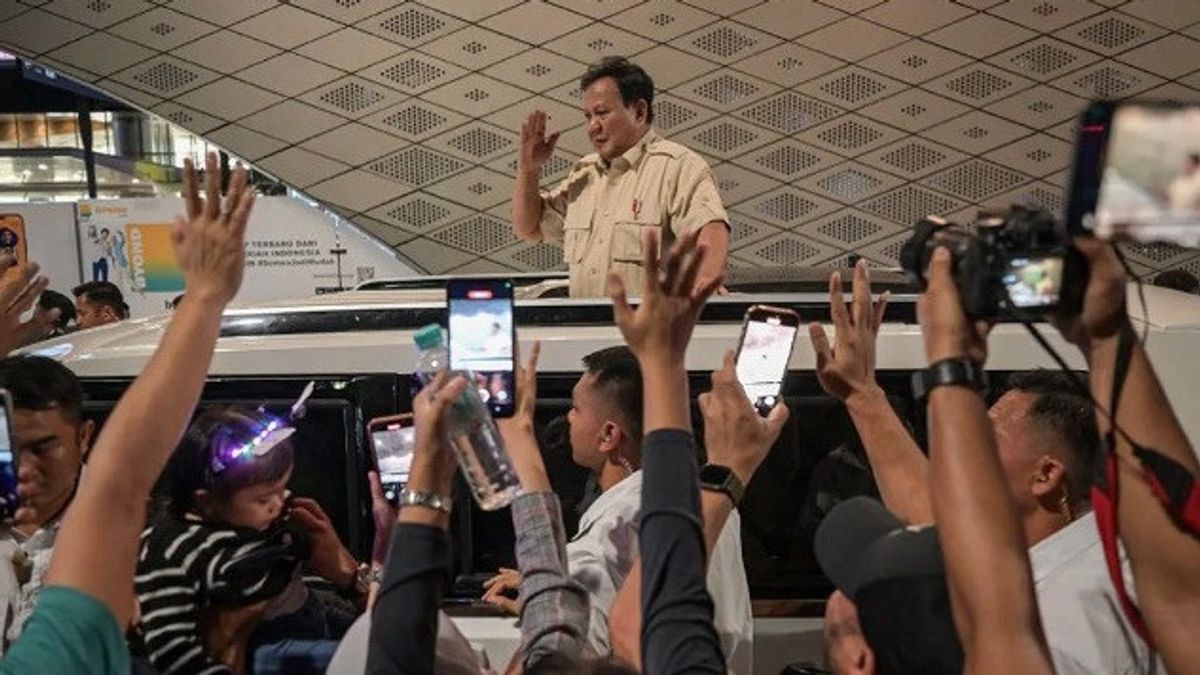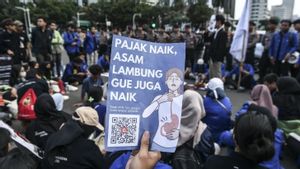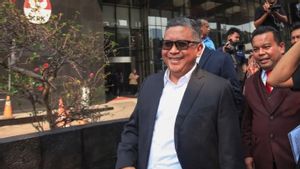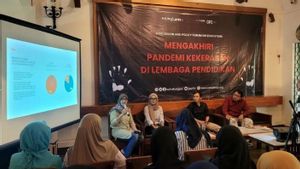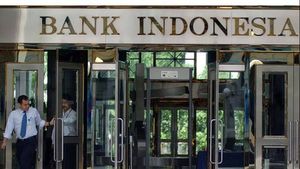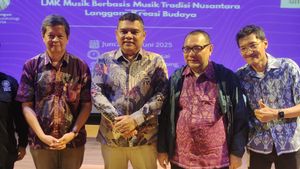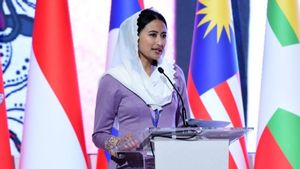Minister of Finance Sri Mulyani announced that the 12 percent Value Added Tax (VAT) only applies to goods that are currently classified as the Red Goods Sales Tax (PPNBM). Economic observer Bhima Yudhistira said this decision would have a more positive impact on the economy even though the price of goods had already risen.
The increase in VAT to 12 percent was the headline in almost all national media. However, the public strongly rejects this increase even though the government said the decision was taken to increase state revenue.
Previously, the government only excluded three items from VAT 12 percent, namely cooking oil, oil, wheat flour, and industrial sugar. In addition to the three items, 12 percent of VAT is still subject to, the most premium food ingredients, such as meat, rice, and premium fish to international schools.
"The increase in VAT is 12 percent only for red goods more positively to the economy even though the current price of goods has already increased because the technical regulations for the Minister of Finance Regulation (PMK) have been issued late," said the Executive Director of the Center of Economics and Law Studies (Celios) Bhima Yudhistira.
The certainty that 12 percent VAT is only for luxury goods was announced directly by President Prabowo Subianto accompanied by Minister of Finance Sri Mulyani on the last day of last year.
"My commitment is to always side with the people, national interests, and fight and work for the welfare of the people," Prabowo said at the Ministry of Finance Building.
"Therefore, as I have said and coordinated with the DPR today, the government has decided that the VAT rate from 11 percent to 12 percent is only imposed on luxury goods and services," he continued.
However, the president turned off the stimulus package to the public whose value reached Rp38.6 trillion was still given. The stimulus is in the form of rice assistance to 16 million food aid recipients who each received 10 kilograms for two months, January and February 2025.
In addition, a 50 percent electricity discount for household customers with a power of up to 2.200 volt ampere (VA) in the same period.
There is also an incentive for Income Tax (PPh) 21 borne by the government for workers in the labor-intensive sector with a salary of up to Rp. 10 million per month which is valid from January 1, 2025. Including the exemption of PPh for MSMEs with an asset of less than Rp. 500 million per year.
At the same time, Minister of Finance Sri Mulyani emphasized that VAT which rose from 11 percent to 12 percent was only for luxury goods and services that had been affected by PPNBM so far.
Sri Mulyani said that there are only a few private jets, cruise ships, and very luxurious houses whose values are regulated in PMK number 15 of 2023.
CelIOS Executive Director Bhima Yudhistira said 12 percent VAT only for luxury goods showed President Prabowo was worried that he would be considered a failure and not sided with the people within 100 days of his government's theme.
In addition, Prabowo also wants to show the public and his ministers that he is not his assistants, including the Minister of Finance, Sri Mulyani.
"Because what has been forced VAT to increase to 12 percent for all of Sri Mulyani's goods, it means that there is a rift between Prabowo and the Ministry of Finance. That's what it looks like, so Prabowo wants to show again that he is the president who has a pro-people mandate, don't be disturbed by contradictory policies," said Bhima.
Apart from that, Bhima believes that it has a more positive impact on the economy even though the current price of goods has gone up because the technical regulations for PMK have been issued late. However, he encouraged the government in the future to be more assertive in making regulations so that the public and business actors were not accompanied.
"The government has finally balanced the purchasing power of the lower middle class, and MSMEs," Bhima told VOI.
"But what is expected after the cancellation of VAT is 12 percent to public goods and services, the government should have started preparing an 8 percent reduction in VAT rates," he added.
SEE ALSO:
However, CelIOS Media economist Wakyudi Askar said the 12 percent VAT decision only for luxury goods was still confusing, because Indonesia's tax regulations did not recognize the multi-tariff system.
Previously, the implementation of VAT of 12 percent was predicted to increase the state's income by around Rp. 80 trillion. However, this is believed to further erode people's purchasing power, which in turn puts pressure on economic growth.
To replace VAT revenues that did not increase, said Bhima, the government has many options. The first and most important thing is to start designing wealth tax or wealth tax, where the total assets of the super-rich are taxed by two percent.
"So it's not an income tax, but an asset tax that Indonesia doesn't have yet. The estimate will be obtained of Rp. 81.6 trillion once the implementation of the wealth tax. OECD and the G20 also encourage the implementation of the wealth tax," he said.
Wealth tax has long been a fiscal instrument in various countries, including countries that are members of the Organization for Cooperation and Growth (OECD). In Norway, net wealth tax tax is subject to a rate of 0.85 percent and revenues are divided between the central and regional governments. Meanwhile in Switzerland, net wealth tax at the regional level varies.
In addition to Europe, wealth taxes are also applied by OECD countries in Latin America such as Colombia. The Colombian government sets a rate of one percent over net assets worth more than COP 5 billion or IDR 19.3 billion.
The second way, explained Bhima, is to run a carbon tax as mandated in the Law on Harmonization of Tax Regulations (UU HPP) starting this year. Regarding the carbon tax, according to Bhima, the government only needs to issue its PMK.
Once enforced to the coal PLTU, the carbon tax proceeds will be used to boost renewable energy spending that absorbs labor. It's also good for the carbon tax for the environment," he said again.
Then the third, the VAT acceptance option can also be obtained through a coal production tax outside of higher royalties. Fourth, the government must close tax leaks in the palm oil and mining sectors.
"Fifth, evaluate all tax incentives that are not on target. For example, nickel smelter companies whose profits are huge do not need to be given a tax holiday," he concluded.
The English, Chinese, Japanese, Arabic, and French versions are automatically generated by the AI. So there may still be inaccuracies in translating, please always see Indonesian as our main language. (system supported by DigitalSiber.id)
